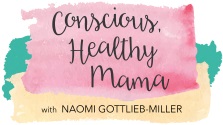I like sleep.
Or more specifically, I like feeling well rested.
I used to be more of a night owl, who also happened to wake up early. When I was in my early twenties and living in NYC, I worked 3 jobs at one time because how else could I afford to live in New York? I worked at a doggy daycare and Rolling Stone magazine on alternating week days, and at night, I worked at a bar.
Sometimes, these jobs would overlap and I’d be at the bar until 1 or 2 am only to wake up at 6am for one of my daytime jobs.
It was exhausting and thrilling and I loved it.
I rubbed elbows with some very interesting people and didn’t want to miss out on a single second of life in NYC, which true to it’s reputation, really never stops.
I was also 22, with no kids and no real responsibilities outside of my work, so my body could manage the lack of sleep.
At 39, with 3 kids and a job I love, I have learned that sleep is my friend, not my enemy.
Despite this, I am still not so great at getting enough sleep.
Like many moms, once the kids finally fall asleep the pull to do all the things is really strong and it’s easy to get caught up in it.
That and there’s no easier time to zone out on facebook than when you’re exhausted.
A few weeks ago, I was feeling super frustrated about my nighttime routine.
See, every December my intention is to go to bed earlier. It’s a month that can be full of intensity with holidays and high expectations, so creating more calm and increasing sleep always feels super necessary.
I also struggle with it every single year.
I could make all of the excuses but what it comes down to is lack of ease.
More specifically, I don’t make it easy for myself to go to bed early.
Part of this is that I am easily distracted and at night, it’s even worse.
But it’s also that I didn’t really have a solid nighttime routine.
Instead, I had a few random things that I’d spread out over the course of the evening, which meant that maybe they happened and maybe they didn’t.
More importantly, the ones I did do, happened in my actual bed — which I didn’t like.
A few weeks ago, I decided I wanted to start drinking tea at night again. The weather had been a little colder so I wanted something warm and grounding before going to bed. I hoped this might help me fall asleep a little easier.
It was hard to get into the rhythm of this at first.
So what I did was to set out my mug with a tea bag in it when I was making dinner.
This way, it was a visual reminder to have my tea after the kids fell asleep AND I removed one of the barriers to not doing it later.
After a few weeks of doing this, I had a lightbulb moment of awareness.
This new tea habit could be the key to creating a more clear, connected, and consistent nighttime routine.
The other big things I prefer to do at night are planning the next day ahead and writing in my smile file. I usually did both of these in my bed, often after cleaning up and scrolling for too long.
The thing is, once I got into bed, all I wanted to do was massage my feet and read and pass out. The writing tasks felt like work, instead of necessary and enjoyable self-care.
And often, I’d be so DONE by the time I was done planning and writing, I wouldn’t make it to the foot massage or reading, which was frustrating.
Usually when I had my tea, I’d roam around carrying it through the house, drinking aimlessly. Or I’d sit and fold laundry while drinking my tea. Or I’d scroll through fb drinking my tea, which felt counterproductive.
I decided to add my writing habits to my new nighttime tea ritual.
It seemed so obvious that these 3 things could work well together.
Along with my goal of getting in bed by 10pm(ish), I now had some clear boundaries as well as habits I could combine for a sweet, grounding, satisfying nighttime routine.
And now, after just a few weeks, I am in bed a little earlier and feeling more grounded when I do.
Want to figure out the tools to creating your own nighttime (or midday or morning) routine that feels satisfying and simple?
Here are the key actions to creating your new favorite routine:
First, you need to figure out how you want to feel.
I was feeling exhausted and ungrounded getting into bed. Not only that, but I felt disorganized and rushed when I finally got into bed. I wanted to feel calmer and more grounded. Additionally, I didn’t want to be on my phone in my bed, which I was doing in order to write in my smile file.
Second, you need to figure out what current habits you have.
What is working and what isn’t. Then you can figure out what you might want to add in.
I did this by assessing my current habits. Most of these were shoved into the few spare minutes I had before falling asleep. I knew I wanted to keep my planning and smile file rituals, but not in the way I did them. Adding in a mug of hot tea at night felt like the right because I knew the warmth would help me feel grounded physically. Drinking it slowly would help slow down my nighttime rhythm.
Third, you need to make it easy.
The tea was easy because I just needed hot water. By setting it up early, I removed the small barrier of having to get it all ready later.
Fourth, a visual reminder can be helpful.
Setting the teabag in the mug helped me because it gave me a visual reminder of what I wanted to do later. Eventually, I wouldn’t need that anymore because it became an established habit. But at first, the visual reminder helped me stay accountable to my goal.
Fifth, you’ve got to start small.
One cup of tea. Without any other expectations. So at first, I didn’t add in any other habits because I didn’t plan to. I didn’t force myself to sit and drink. I did business as usual, just with tea. When that no longer felt grounding, I thought about how I could shift it to be what I really wanted.
Sixth, get good at working backwards.
When working with time boundaries, you have to work backwards.
Here’s what I mean:
In order to get into bed at 10pm, I’d need to be drinking my tea by 9:40pm. The tea needs to steep for about 10 minutes, so the water has to be hot by 9:30pm. This means I have to start the kettle on the stove at around 9:20 or 9:25 at the latest.
Seventh, be flexible with your time.
Whenever I am adding in a new habit that has time boundaries, I usually give myself a 10-15 minute window of grace. So I might not get into bed at 10, but 10:10pm. I can slowly work my way towards 10pm, once I get used to the rhythm of the routine.
Eighth, if you have to force it, the habit won’t work.
Really, truly if you have to force it, the new habit or routine won’t work because it will feel like work. So it might require some tinkering and adjusting to get the routine down. that’s ok. If you’re committed to the actions and the feeling but something isn’t working, go back through steps 1-6.
Was this helpful?
If you need a little more support making new habits happen schedule a quick call with me here.



